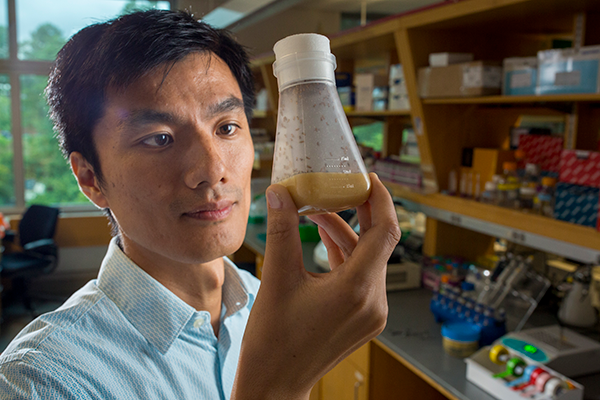
Zhao Zhang, PhD — ZZ to just about everyone — is a bit of a scientific outlier.
While most of his bioscience colleagues around the world are studying the 23,000 protein-coding genes that make us human, the assistant professor of pharmacology and cancer biology is looking at the other part of the genome and asking what it does.
Specifically, Zhang’s group is looking at the half of our genome that is made up of long, repetitive sequences of DNA called transposons, or “jumping genes.”
Transposons jump around in the genome making changes and enabling evolution — but also illnesses, including cancer.
“The transposon is like a virus, an endogenous virus,” Zhang explains. “They were viruses millions of years ago and they invaded our ancestors. But we’ve turned them into part of ourselves.”
He’s exploring how and why that happened and whether transposons might be used as tools against diseases.
Zhang came to Duke in 2019. Earlier this year, he was named a 2021 Pew Scholar in the Biomedical Sciences, an honor awarded to young investigators of outstanding promise.
At Duke he is expanding on research exploring a molecule called piRNA, which has a special ability to suppress transposons. He is also extending his investigation of transposons into other fields of inquiry, especially immunity. As relics of old infections, transposons play a role in educating the immune system about threats.
Zhang is hoping his research on transposons will yield insights into the immune system’s role in cancer, perhaps helping him get a handle on why cancer immunotherapy fails for up to 80 percent of patients.
“I still consider myself a basic scientist,” he says. “Of course, I would love to cure cancer tomorrow too!”
More About Duke Science and Technology Research:
Support Duke Science and Technology
To support research and learn more about Duke Science and Technology, visit dst.duke.edu or email scienceandtechnology@duke.edu.
Story originally published in DukeMed Alumni News, Winter 2021